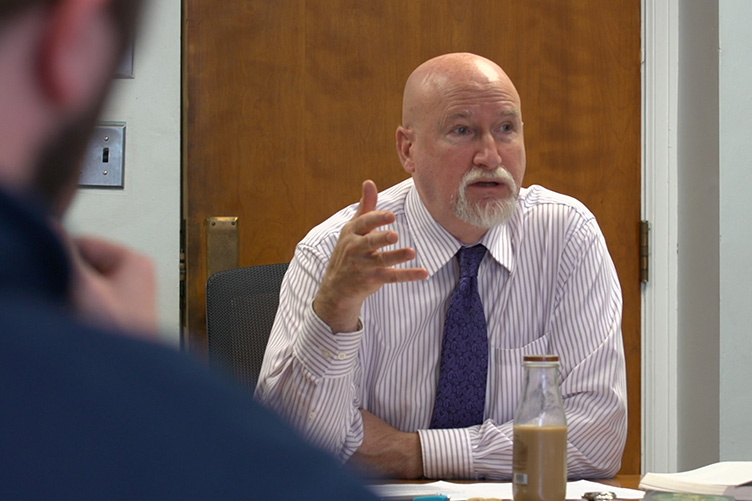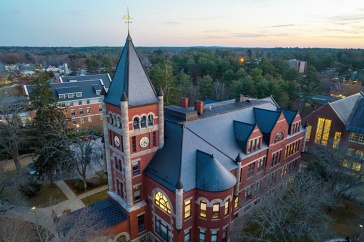
Willem deVries, professor of philosophy
The University of New Hampshire will host philosophy scholars for a four-week seminar that aims to better understand how human knowledge operates and how our minds work in relation to the world.
The seminar is funded through a prestigious grant from the National Endowment for the Humanities (NEH). The award is one of 218 announced recently by NEH, totaling $43.1 million in support for humanities projects across the country. Only 10 grants were awarded in the category of summer seminars and institutes for college and university teachers.
To be held summer 2019 in Durham, the UNH seminar will explore philosophical responses to empiricism in Kant, Hegel and American philosopher Wilfrid Sellars.
“It’s a tremendous honor to receive one of these NEH awards,” says project co-director Willem deVries, professor of philosophy in the College of Liberal Arts at UNH. “Summer seminars like ours have a lasting impact on the participants and the profession, so it speaks to the quality of UNH’s program to get an award like this. Our program will also have a bit of an international spin, because James O’Shea (project co-director and professor of philosophy) teaches at University College Dublin. Indeed, we hope to be able to take UNH to Europe in 2020 with another seminar for European scholars.”
The focus of the 2019 seminar will be on Sellars (1912-1989) and his tussles with empiricism, the idea that all knowledge and meaning arise solely from experience. Sellars’ attempt to develop a more adequate empiricism was profound and set the stage for philosophic debates that persist today, according to deVries. Moreover, his philosophic framework has been the basis of an explosion of scholarship in recent years.
“We’re going to be looking into questions concerning the structure, reach and methods of human knowledge, known as epistemology. We’ll also be looking at the fundamental metaphysics of mind: how do minds relate to the material world around us? Empiricists do not, traditionally, have a strong story to tell about the mind-matter relation. We’ll be exploring a line of thought that stems from Kant through Hegel to Sellars that makes normativity — that is, something like rule-following — a central pillar of what it is to have a mind” says deVries.
Both deVries and O'Shea have written books on Sellars’ philosophy, edited anthologies drawn from conferences devoted to his work, and published essays dealing with Sellars and with aspects of German Idealism, including monographs on Kant and Hegel.
Created in 1965 as an independent federal agency, the NEH supports research and learning in history, literature, philosophy, and other areas of the humanities by funding selected, peer-reviewed proposals from around the nation. Additional information about the NEH and its grant programs is available at: www.neh.gov.
-
Written By:
Susan Dumais '88 '02G | College of Liberal Arts
















































